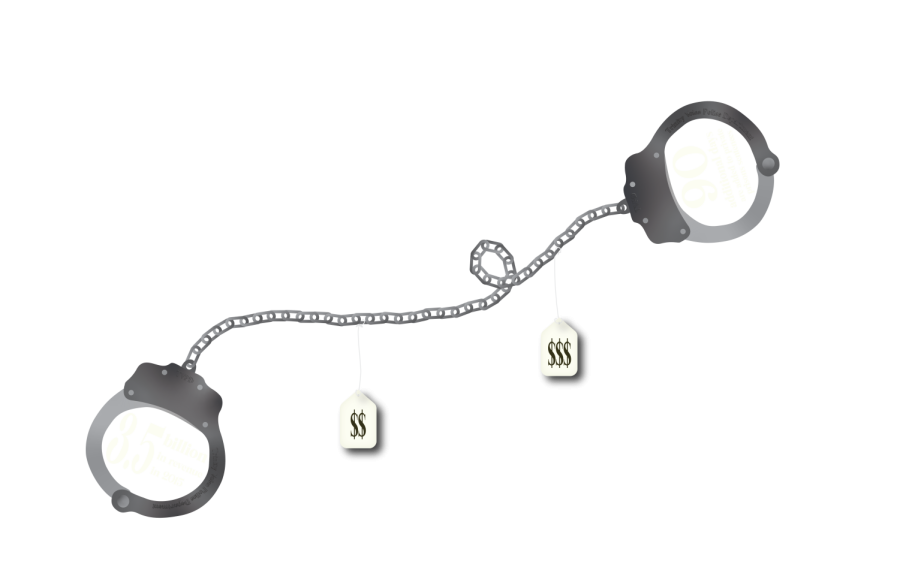In 1844, a factory opened. It was called the Louisiana State Penitentiary, though it was operated by a private company. The product was clothing. The profit was people. The goal, as one prisoner wrote, was to “eke out the dollar and cents of human misery.”
In 1870, a mine opened. Convicts- poor farmers and freedmen, captured by debt- worked in camps with a more than 40% mortality rate. When they died, their bodies were sold to medical schools. “These convicts: we don’t own ‘em,” an operator said in 1883. “One dies, get another.”
In 1967, a farm opened. Black prisoners work in fields from dusk till day. A man named Tarrell Don Hutto runs it. Hutto hasn’t founded CoreCivic, the country’s largest private prison corporation yet. He will.
Private prisons, also known as for-profit prisons, are corrections facilities licensed out to corporations under contractual agreements with state and federal governments. Private prisons have been widespread since the 1980’s, when Reagan-era tough-on-crime bills led to a ballooning incarceration rate that underfunded government agencies were ill-equipped to handle. So, they outsourced; now, private prisons are implemented in 26 states, and hold roughly 8% of the 2 million incarcerated Americans (and majority of detained immigrants), according to prison reform group The Sentencing Project.
They are also an omen- of corporate greed, government negligence, and the dangers of privatization. Private prisons are not the cause of mass incarceration, but a cancer on it, one that constantly threatens to grow. Private prisons are what happen when we measure justice against profit, and profit wins.
This is most graphically seen in horrible conditions caused by cost-cutting. Private prisons are almost universally more crowded than public ones- with profit measured by bed, after all, every open spot is a missed opportunity. Guards aren’t exempt from the hunt for profits either- as the Pulitzer Center reports in 2020, private correctional officers are not only paid on average $6,000 less yearly than in the public ones, but are often forced to work 16-20 hour shifts with no union protections.
This combination- overcrowded inmates and understaffed guards- causes every problem a warden could think of. In 2016, the Department of Justice found that in six of the eight categories it uses to measure prison fitness- including contraband, lockdowns and drug testing- private prisons scored significantly worse than public ones.
Violence is an especially bad problem- private institutions had 65% more inmate-on-inmate assaults and 50% as many inmate-on-staff. The DOJ also found frequent gaps in reporting and discipline, as well as atrocious medical care. In fact, the 2016 report was so comprehensively damning that it caused the DOJ to announce it would phase out private prisons- an announcement that, just a few months later, was quietly reversed.
These conditions are, on their own, appalling, and absolutely reason enough for the abolishment of private prisons. However, they are especially concerning due to the fact that many people incarcerated in private prisons don’t even need to be there.
For private prisons to maximize profit, they need prisoners. That’s where the government system steps in. Since 2012, private prison companies have spent $26 million lobbying state and federal officials to pass harsher crime laws and privatize more sites. Florida is especially notorious for this; senator Marco Rubio has received the most lobbying funds out of any national representative, and private prison organization the GEO Group has been one of former governor Rick Scott’s largest donors.
Corruption is sometimes subtle- in Mississippi, investigators have spent a decade unraveling the millions of dollars funneled to the Commissioner of the Department of Corrections by three private prison groups. Sometimes though, it is horrifically frank. In Pennsylvania, two judges sent at least 5,000 children to for-profit detention centers in exchange for kickbacks. The name of their scheme? “Kids-for-cash.”
Private prisons are not fulfilling a need for prison space; they are creating a need for prisoners. In 2020, studies from the Journal of Labour Economics and Wisconsin School of Business found that simply building a private prison- not even filling it, staffing it, or running- creates 178 new prisoners per million American residents annually, adds 90 additional days of service time, and creates harsher sentences for nonviolent drug crimes. If you’re going to build the beds, you might as well fill them.
Perhaps all this cost-cutting- the horrible conditions, cheaply-paid guards, unjust sentences- might, might be explained, if not justified, if private prisons succeeded in their one apparent goal: to reduce public costs. But even in this, they fail.
Even as far back as 2012, the vast majority of experts- from the Governmental Accountability Office to the New York Times- agreed that private prisons offer no major cost-saving benefit. This is largely due to the increased incarceration and sentences that private prisons cause- according to the American Economic Journal, this alone erases most of the already minor cost savings offered by private contracting.
As for the rest of the money? Nobody knows. As the Brennan Center for Justice explains, private prisons have almost no oversight, in operations or finances. Some might disappear in civil lawsuits (recently, a GEO Group shareholder sued due to the company hiding tens of millions of dollars of lawsuits from investors), others in “expenses” and other opaque categories.
Where the profit goes, however, is a much easier question to answer. Revenue of private prisons is hard to measure- again, due to lack of oversight- but according to the Berkeley Business Review, the two largest companies made over 3.5 billion of revenue in 2015. GEO’s chairman received just a minor compensation: 3.1 million. Private prisons do not cut costs. They do not help the public. They sell the freedom of citizens so a politician, judge or CEO can have a new summer house.
Thankfully, the period of unmitigated growth that private prisons experienced from 1999 to the mid 2010’s seem to be, if not coming to an end, at least slowing. But solving the problem is not as simple as doing away with private prisons.
In 2021, president Joe Biden announced the DOJ would end the use of federal private prison contracts. However, not only was the impact of this order extremely limited, due to the majority of private prisons being licensed by state, but it also led to creative workarounds. For example, a number of private prisons converted to “immigration detention centers,” centers that, due to recent anti-immigration enforcement policies, are sure to fill up.
Fixing private prisons is not a silver bullet. Without system-wide action, mass incarceration will continue. But as long as corporations are allowed to profit off of misery and injustice, people who don’t deserve to suffer will. From 1844 to 2023, private prisons have been a warning. We need to listen.










